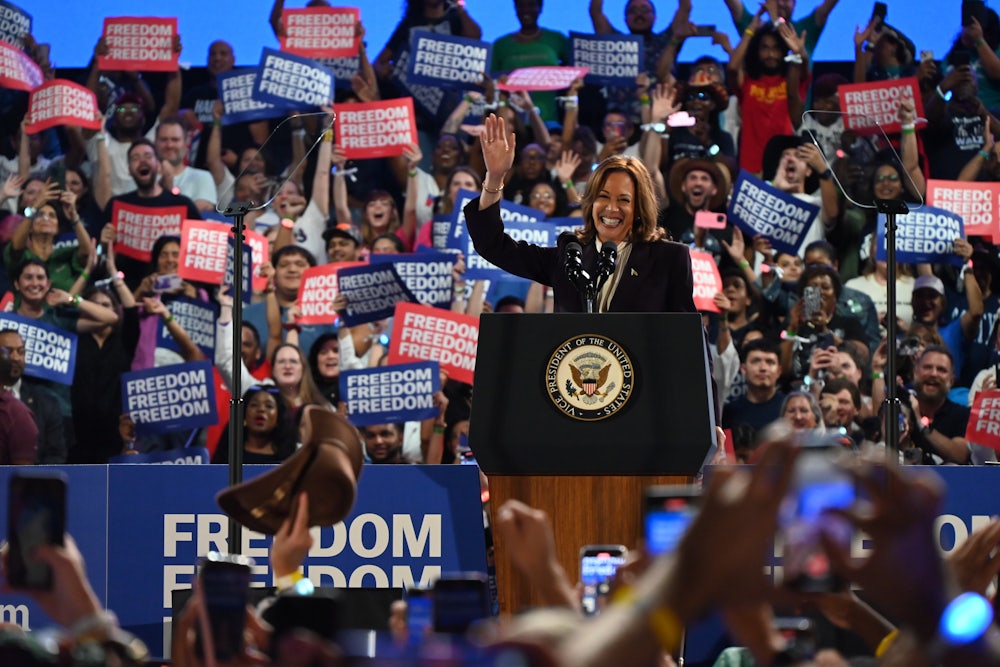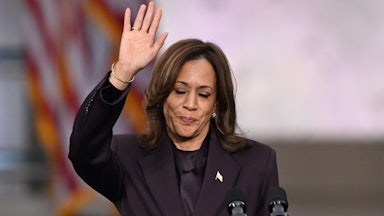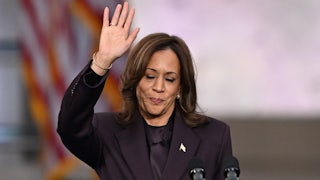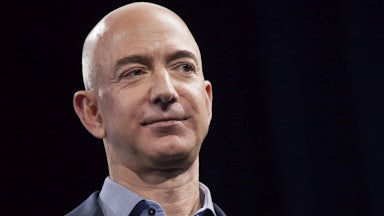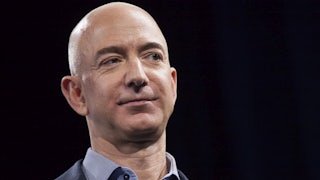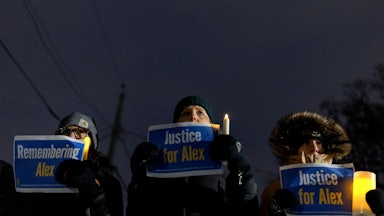The psychological differences between liberals and conservatives are an important and underexamined aspect of politics. Never are they more transparently on display than at election time, and I would submit to you that if Kamala Harris ends up losing this race, the tendency I’m seeing on display among liberals may actually bear some part of the blame for the loss.
To put it simply, liberals tend toward fatalism and panic; the label often employed is “bedwetters.” Did you see those new anti-trans ads? She’s doomed. Oh my God, did you see what Nate Silver just said? It’s over. Yikes, the polls in Pennsylvania just shifted seven-tenths of a point in Trump’s favor, this is a nightmare. Oh dear, the Nevada early vote totals are a disaster. And on and on and on and on: Liberals look for things to panic about. Everywhere you look, liberals are finding a reason to white-knuckle their way through these final hours.
Conservatives, on the other hand, tend to do the opposite. They look for things to feel confident about. Hey, check out Polymarket today—our guy is cruising. Look at the new Insider Advantage polls; looking good. Harris bombed in that CNN town hall. She’s a joke. This thing is over, over, over. (And if we lose, well, you know it was stolen.)
This isn’t monolithic. There are some confident liberals and some worrywart conservatives, but generally, what I describe above is true. Why?
I’m not really sure. I’d need to be a psychologist to give a full answer, but I think it starts with the fact that liberals worry more about the world; carry more psychic weight around with them. Conservatives worry about the world too, but they do so in a very different way. Liberals love complexity, while conservatives prefer simplicity. Crime? Well, says the liberal, it’s all very sociologically complicated, and we need to study it and think it through and look at the root causes. Whereas for the conservative, the answer to crime is pretty simple. Lock ’em up.
I think there’s something else going on that is specific to elections, which is that many liberals have, whether consciously or not, absorbed the lesson from the media that they don’t really represent or speak for America, while conservatives are serenely confident that they do represent and speak for America. Here’s how the media reinforces this: When a reporter wants to talk to “real Americans,” she sets out to find working-class white people, basically: Trump voters. She goes to Johnstown or Kalamazoo. She sure doesn’t go to the Upper West Side, or even to a place like Pittsburgh’s Squirrel Hill, a very blue (and very cool, by the way, you should go!) neighborhood. Remember all those media bus trips after Trump’s first election? Reporters wanted desperately to fathom these voters. No one seemed curious enough to talk to the coalition that elected Biden four years later.
This all started in the 1980s with the Reagan Democrats—the former Kennedy and Humphrey voters who’d had it up to here by then with big government and the “experts” making their kids ride school buses halfway across the county. Back then, it was kind of true that liberalism had lost touch with middle America. Conservatives like Newt Gingrich said it and said it and said it—all while whipping the GOP base against certain bastions of civic virtue, such as science, academia, and journalism—and 40 years on, this has ended up giving liberals a massive inferiority complex about whether middle America is on their side and can be persuaded to support candidates they nominate.
It’s nonsense. Propaganda of this sort remains a leading leitmotif of the right-wing media, but the facts say otherwise. The Republican Party has become so extreme that it no longer represents middle America at all. Middle America wants women to own their reproductive freedom. Middle America wants sensible gun laws. Middle America wants the superrich to pay more taxes. Middle America wants a higher minimum wage, more housing, and more investments made in the middle class. Middle America thinks transgender people should be protected from discrimination and treated with respect (see this new poll). Liberals should be more confident about all this.
Now let’s talk about the here and now. In the current circumstance, there are, I think, three realities that contribute heavily to all this fatalism and panic. Let’s examine each.
The first is concern that Kamala Harris has largely lost her post-convention lead in the polls. There is truth to this. It’s concerning. But it’s nothing to freak out about. On the FiveThirtyEight averages, since late August, Harris’s 3.7 percent lead has shrunk to Sunday’s 1.3 percent lead. However, Harris hasn’t dropped. In fact, she’s gained, from 47.3 on August 23 to 47.9 Sunday. It’s just that Trump has gained a little more. But it’s all margin of error stuff. Completely meaningless, statistically. And there’s reason to think that right-wing pollsters are gaming these averages, as Greg Sargent and I wrote last week. So, bottom line—it’s close. We knew that.
The second is that the memory of 2016 still lingers, and with it, the fear that the country will never elect a woman (or at least a Democratic woman)—and certainly not a Black and South Asian woman. Again, this is a real concern. But to be fatalistic about this is in some sense to help will it into reality. We have overcome many hurdles before in this country. To believe in the possibility of progress requires optimism—a pragmatic and realistic optimism, certainly, but an acceptance of the idea that we have changed this country enough since the 1960s that this is possible. If you don’t have at least that much faith—faith being the evidence of things not seen—you should stop doing politics.
Third, I think, is a certain disbelief that a man such as Trump can even be this close. I have a hard time understanding this view. Look: It’s a divided country. Yes, it has been sobering to see that 35, 38 percent of the country loves the man. That remaining eight or 10 percent he’s getting in the polls is people who aren’t MAGA but who have some specific thing that pulls them toward Trump: They want lower taxes, they’re against abortion rights, they’re suspicious of “all that government,” they still think he was a successful businessman.
The fault could lie with how well the press is informing a public full of people who work hard and don’t have as many hours in the day to study the political winds. Here, all that sanewashing—the A1 newspaper story that plucks a single sensible sentence from seven hours of Trump blather; the cable news chyron that suggests a mass deportation plan will solve our housing problems—cuts deep tears in the civic fabric.
But in a way, these immutable facts should provide a certain amount of solace. Anybody on the right would be polling at around 47 percent. And no one on the Democratic side would be doing much better than Harris. Maybe Gretchen Whitmer is a dynamo campaigner; I don’t know. But even if she is and she were the candidate, I think at most she’d be about a point and a half ahead of where Harris is. Again—statistically insignificant.
Don’t forget: Harris is still in a strong position to win. If you look beyond the horse-race top lines and examine some cross tabs, you see some encouraging numbers. She has caught up to and in some polls surpassed Trump on handling of the economy. People like her more and trust her more. In addition, don’t forget these facts. She has gobs more money than he does; she’s raised nearly $1 billion (!) to his $388 million. She supposedly has a massive army of volunteers, and he supposedly does not. This is actually an incredible accomplishment for a campaign that had to enter the presidential race the way hers did.
I’m not saying don’t be worried. I’m worried all the time. But I don’t worry about polls. I worry about who will control the narrative in this closing week, and where those still-undecided voters are going to land. I also know this about the closing week: It’s important to appear confident; to look like you know you’re going to win. Harris, with her still-massive crowds and her roster of surrogates giving killer speeches like Michelle Obama’s Saturday night, is doing a good job of that.
Campaigns are hard. They’re supposed to be. Adverse things will happen. They can be grounds for concern, sure. And there is so much at stake in this particular election: the very future of the country. But freaking out and panicking just contributes to an overall atmosphere that helps the other side. Don’t do it. Fatalism is the opium of the people.
